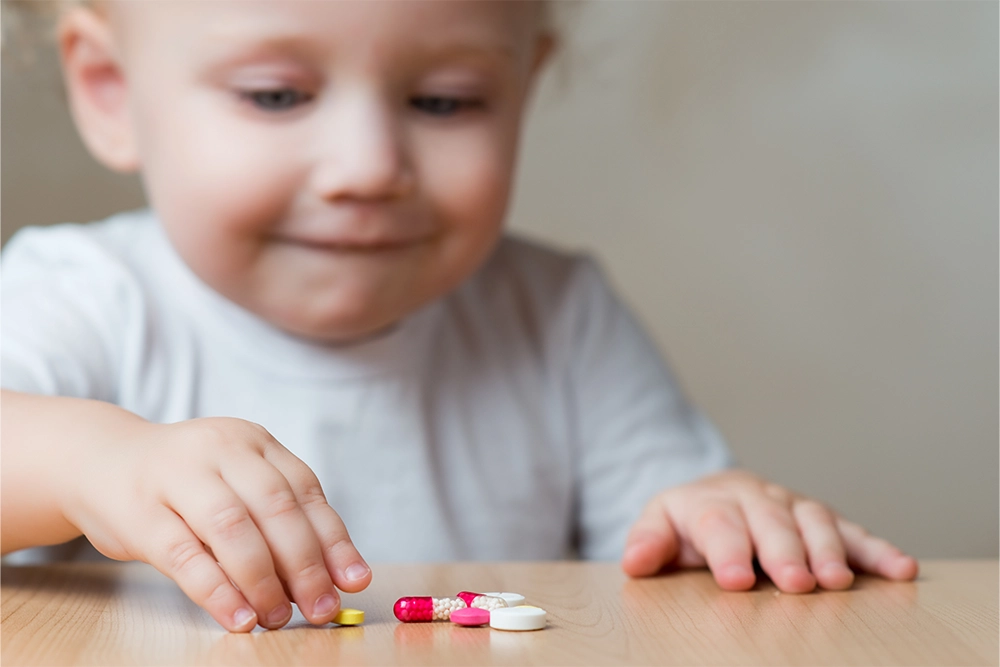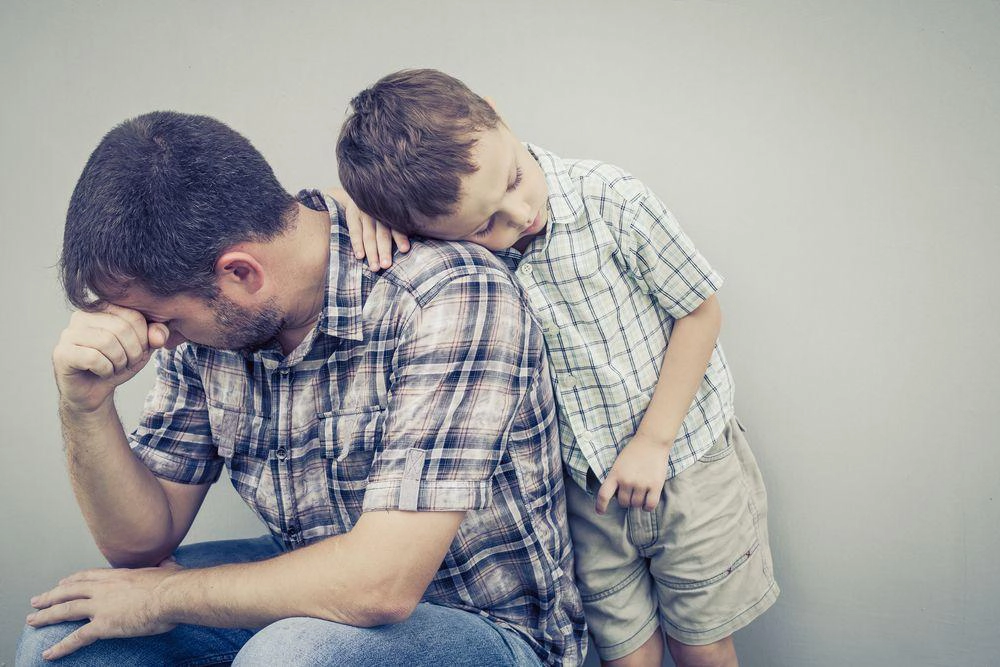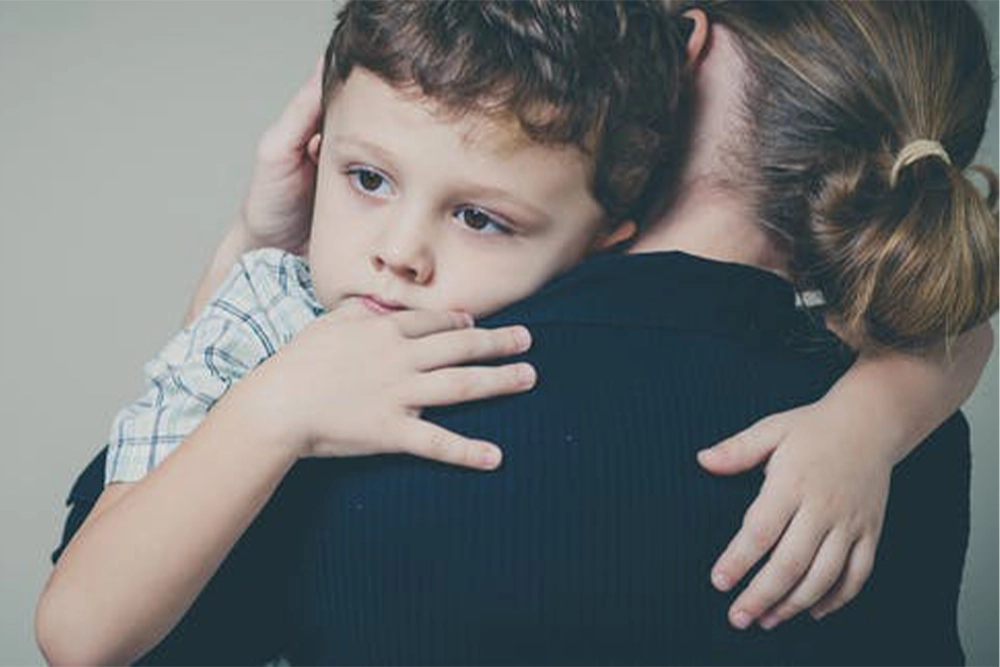Issues on children with drug addiction are a worsening epidemic across the globe. Many parents are unsure about what they can do about their children who have drug abuse problems. In this post, we’re going to provide you with some tips on how you can help your child. Addicted children will need stability as well as understanding from parents. It is vital in their addiction treatment and recovery.
Related article: How to Talk to Your Children about Drug and Alcohol Abuse?
Strengthening Your Relationship with Your Child
For someone struggling with drug or alcohol addiction, it is likely that they will do what they can to continue their substance use. It is not because it’s their choice but since they are suffering from addiction, their bodies experience intense cravings for the drug. Nevertheless, it can be difficult to understand such drug-seeking behaviour.
But if the individual continues to look for ways to acquire drugs, it can damage their relationship with their parents and family significantly. As a parent, it is important to work harder so you can strengthen your relationship with your child. One of the ways to do it is to ensure that communication lines between you and your child are open.
It is not only a matter of talking with your child. Communication should be assertive but still open. It means that there is a balance when it comes to actively listen to your child and asking questions. Good communication will be able to help you in detecting problems in their early stages. When you identify the problems, you can then react appropriately.
Related article: Why Recovering Addicts Will Benefit from Family Therapy

Communicate in a Non-Judgmental Way
If you want a productive and open conversation with your child who is suffering from addiction, remember to be non-judgmental. When you ask your child questions, it is best if they are open-ended. It means that the questions you ought to ask are ones that are not simply answerable by a yes or a no.
It is more helpful to ask open-ended questions because there are more opportunities for exchanges between you and your child. The goal of asking your child questions is not to force them into a confession but so that you can learn what they are going through. The conversation will also allow your child to express his or her struggles and concerns.
When communicating with your child, try to practice the following:
- Refrain from giving negative reactions.
- Do your best to focus on the positive side of the situation.
- Eliminate distractions.
- Respect your child as an individual and be kind.
- Be understanding and accepting.
- Focus on your child during the conversation and stay engaged.
Remember to avoid being too emotional. It won’t help during your conversation with your child. For example, if you are too upset about the situation and you can’t manage your emotions, reschedule the talk for a better time. It is essential that you are reasonable and calm when talking to your child.
Continually Encourage and Support Your Child
Try your best to not focus too much on what mistakes your child has made. It will affect your child negatively. They will lose confidence in themselves, lower their self-esteem, and decrease their sense of self. What will most likely happen is that they will continue their substance use to deal with such negative feelings.
What you can do instead is to focus on the positive. Continue to encourage your child that they can still do something to end the cycle of addiction. When you support your child and remain optimistic, you can build a sense of cooperation and teamwork between you and your child. It will also reduce negativity and conflict.
Doing so, your child will be able to face their challenges. They will be able to build better relationships with good friends. Your child can feel that they can change and will try healthier activities to replace the bad ones. They will also do their best to learn better ways to cope without the need for drugs or alcohol.
Related article: Does Family Therapy for Addiction Work?
Remaining Positive throughout the Process
When you encourage your child to change, it doesn’t mean that you should compare them to others. Don’t say “why can’t you be like so and so.” This kind of message will not help. It will only make them feel worse than they already are.
Also, as a parent, you want to take care of your child. But this does not mean that you’re going to be the one to solve their problems. If you want to encourage your child, you can focus on these three messages that will strengthen the positivity of the process:
- Say to your child that you are confident that they can do better. Tell them and make them feel that you believe in their ability to improve and bounce back.
- Remind your child that he or she is smart and very much capable. At the same time, provide support and assistance whenever they need it.
- Tell your child that he or she is very important to you. Express how you value them and how you need them in your life.
When you keep these points in your mind as you are conversing with your child, you will be able to communicate in an empowering way. You won’t be defeating or critical to them. Also, remember that the way you communicate with your child should be encouraging. Convey your belief in them that they can develop their full potential.
This manner of communicating will help in getting your child to an addiction treatment program. Treatment is a vital step for individuals with drug addiction problems. Be your child’s partner during this recovery period. Help him or her in researching possible rehabilitation centres. You can also show your support by being in family therapy sessions. If you want to ensure a successful recovery for your children with drug addiction, continue working on a healthier family dynamic.

Create Guidelines, Reinforce Them, and Be Consistent
When you establish guidelines for your child, be sure that you can set your expectations clearly. The guidelines should include what behaviours are acceptable and what are not. These clear guidelines will help both you and your child. He or she will know what to do and you will be able to react appropriately to the present situation.
To ensure that the guidelines will be successful, it is important that you develop them with your child. Doing it this way will allow all parties to have a say on what the consequences are for certain behaviours. When writing the guidelines, state them similar to those of cause and effect statements.
For example, if your child does this action, then this will be the consequence. Because the guidelines are clearly established, you can avoid any unexpected turns in the future. You may not be able to cover all situations. But when you establish guidelines for more common situations, there will be a reduction of reactions that are emotionally-fueled.
Regardless of how concrete your guidelines are, an essential element of equal importance is your consistency. When you become inconsistent, it will diminish your relationship with your addicted child. It is possible that the respect they have for you will also decrease. You need to be firm in implementing your rules.
Setting Clear Boundaries for Your Child
Guidelines are what you follow. Boundaries are ones that determine what you’ll do and won’t do for children with addiction problems. Boundaries represent ways to treat individuals. And it has to be in a reasonable manner.
People who have addiction problems usually test the boundaries of their loved ones. They can do this directly or by being manipulative. When you set boundaries when all parties are calm, you’ll be able to think rationally. You can think better about what is acceptable and what is not.
Boundaries can greatly help you in avoiding inconsistencies especially when such boundaries are being tested. For you to set clear boundaries for your child, here are some of the points that you have to consider. Try your best to be honest to yourself while answering these questions:
- Would you lie to cover your child’s bad behaviour?
- Would you be willing to set aside your needs so that you can give your child what he or she wants?
- Are you going to accept behaviours relating to substance abuse?
- What are your expectations when it comes to the way that your child treats you?
How to Avoid Enabling Behaviours Toward Your Child
When you have set clear boundaries, it will help in making the distinction between behaviours that help your child and those that enable them. Enabling happens when the boundaries are not clear. As an enabler, you begin to take on a lot of the responsibilities for your child’s actions.
Do you make excuses for your child’s behaviours? Do you often blame yourself why your child is having addiction problems? When you try to help your child, don’t focus on simply reducing the pain. It is a short-term solution. Ultimately, when you enable your child, you are only reinforcing their bad behaviours. It is not your intention to do so but that is what’s going to happen.
Setting strong boundaries have risks that you should be willing to take. For example, it may cause an increase in conflict between you and your child. But this conflict and resistance won’t last long. What it will do is that it will make a firm statement to your child that you can’t be manipulated by them.
Appropriate and clear boundaries are necessary to ensure that your child becomes responsible for their actions. Eventually, they will realize how they are wrong and they will choose to seek help. It is an important first step towards drug addiction recovery.

Taking Care of Yourself
By having clear boundaries and firm guidelines, you will help yourself to be less stressed about the situation. However, in order to get the results that you want for your child which is to recover from addiction, you should also take care of yourself.
Taking care of yourself means prioritizing your needs. It is a vital tool for you as a parent. When you take care of your child and their needs, you risk forgetting your own needs. You become more and more stressed and you may even experience burnout.
Are you feeling stressed because of this situation with your child about drug addiction? Here are some of the mental and physical conditions that manifest when you’re going through highly stressful times.
- Arthritis
- Diabetes
- Cancer
- Heart disease
- Obesity
- Weak immune system
- Depression
- Anxiety
- Inability to focus and remember
How to Practice Self-Care
There are many ways that you can practice self-care. Remember that you need time for yourself so you can focus on your needs. When times become really stressful, you may have to take a step back so you can breathe. Here are some of the ways that you can better take care of yourself:
- Ask for help when you feel you need it.
- Accept help from people who care about you.
- Spend more time on things that you enjoy doing.
- Talk to your loved ones and your friends.
- Make time for physical exercises.
- Talk to a therapist so you can take care of your mental well-being.
- Join a drug addiction recovery support group.
- Practice relaxation exercises like meditation and yoga.
When you practice self-care, you will become more capable to take care of your child better. Since you have been experiencing negative effects because of stress, it can affect how you decide, support, and encourage your child. By taking care of your self properly, you can also be a role model for your child. It will encourage them to make better choices so they can lead healthier lives.
Educating Yourself About Drug Addiction
Around the globe, many experts are continually studying drug addiction and its treatments. With new knowledge about this problem, there are plenty of opportunities that new treatments may be developed. In the near future, drug addiction can be prevented or cured completely.
As a parent of a child with drug addiction problems, it is vital that you know and understands as much as you can about the condition. By knowing the latest developments in addiction treatment, you can decide better about the options that will help your child the most. It will also provide you with much hope. It is something that you need to continue helping your child.
Educating yourself about addiction can also help in preventing all parties from blaming each other about the problem. When someone has an addiction, it is not because that person is weak or willful or stubborn. Addiction is a disease and not even the addict wants what their life has become.
As a disease, addiction can change how the brain works. Even though the individual voluntarily made the decision to take addictive substances at first, it’s the disease that caused them to continue taking drugs. Their brains have become dependent on it. By understanding this, parents can let go of the anger and focus instead on the treatment and recovery.
Joining a Support Group
Supporting your child who has drug addiction problems is not going to be easy. It is perhaps among the most difficult tasks that a parent ever has to do. It will be stressful and it can last for many years. There will be a lot of intense emotions along the way and relationships will suffer. But this is a problem that has a solution.
In the same way that addicts can’t treat their addictions alone, you as a parent won’t be able to encourage and support your child by yourself. Find time to look for support groups that you can join and participate in. Alateen and Al-Anon are some of the groups that you can trust. They can help you and other parents of children with drug addiction.
Through support groups, you can have a space that is safe and non-judgmental. You can learn and discuss so many things about drug addiction, treatment, and recovery. This kind of support that you can get from these groups can greatly help you in overcoming the many obstacles you are facing as a parent of a child or children with drug addiction problems.
The meetings in these support groups can assist you in working on how to lower your stress levels and improve your psychological well-being, too. It will not only be about how to take care of your addicted child. It will also be about how you can better take care of yourself.
Trying Family Therapy
Drug addiction does not only affect the addict. It can affect their parents, siblings, loved ones, and friends. The consequences of the addict’s behaviours can change the lives of the people around them. Since the problem affects everyone in the family, the solution must also be dealt with as a family.
A common problem among families of children with drug addiction is that there is a lack of open communication. Family members should be able to talk openly about the issues. However, what happens is that they would rather not talk about it and just ignore the problem altogether. All families want the addiction problem to be solved. But how could they when they’re not talking?
With family therapy, the loved ones of the addicted individual can have a safe space where their feelings of guilt, distrust, and stress can be expressed and processed. The sessions of family therapy can help the members to sort out their feelings and communicate them properly. When the dust has settled, then they can focus on helping their loved one who has an addiction.
Eating Meals as a Family
When was the last time that you ate your meal as a family? For many of us, it’s more convenient to just grab a fast food meal and eat it while at work or while watching television. Schedules are tight and parents no longer have the time nor the energy to prepare hearty meals.
By having your meal as a family, you can provide opportunities for family members to reconnect. You don’t have to discuss problems while having dinner. That is not the point. What’s important is for all members of the family to see each other and just enjoy a good meal.
If you don’t have a lot of time because of work, don’t be pressured to prepare all meals every day. You can have family dinners every weekend or even just once a week. It will greatly help your family to rebuild relationships among the members.

Managing Expectations
When your child enters treatment and your family attends therapy sessions, it’s easy to think that this problem is finally addressed and things are going to get better. However, what every family member has to keep in mind is that addiction treatment and recovery is a process. It will definitely take time for things to change and get better. Often, many families are disappointed because they want to see immediate changes and results.
Families of children with addiction need to focus on working on the recovery process. Individuals who are in early recovery will still make plenty of mistakes. They may even relapse and feel disappointed and frustrated with themselves.
Parents and other family members need to manage their expectations about the treatment and recovery process for drug addiction. It’s going to take time and their addicted loved one will be needing a lot of love, encouragement, support, and understanding to go through it successfully.
Takeaway
There are several other things that parents can do about children with drug addiction. The points we have suggested here are some that you can use to address the problem. Remember that you need to extend as much patience as you can. To help your child effectively, you will also need to take care of yourself.
Drug addiction affects everyone dear to the addicted individual. Successful recovery from addiction is a team effort. The addict won’t be able to do it alone. Their families’ love and support are important in the success of addiction treatment.
Related article: Pilates and Other Programs for Treating Drug Addiction







